PORTLAND — It used to be that cheating was a simple matter of copying someone else’s homework, letting your eyes wander during a test or turning in a friend’s term paper as your own.
Now, smart phones and other information technologies are so prevalent in students’ lives that it’s tougher to tell when they’re cheating.
“You see people texting all the time in class,” said Nate Stoddard, a Portland High School sophomore, demonstrating how a student might hold a smart phone on his lap and out of sight. “I don’t know if they’re cheating, but they could be.”
To bring some clarity to a complicated issue, Portland school officials have drafted a detailed policy on academic honesty. The School Committee will formally receive the policy tonight and vote on the proposal in the coming weeks.
It springs from the committee’s ongoing review of all of the district’s policies and follows a few incidents last year when students were caught cheating, school officials said.
“With access to information increasing, we needed to define what it means to be an ethical student, staff member and school community member,” said David Galin, chief academic officer. “Students need to understand clearly what they’re working toward. Simply saying ‘Be a good student’ isn’t enough.”
The academic honesty proposal would put teeth in the district’s overall code of conduct, which says students “should refrain from cheating or plagiarizing the work of others,” among several general standards for ethical and responsible behavior.
It outlines various cheating behaviors, from using old-fashioned “cheat sheets” to downloading test answers through smart phones. It also offers specific consequences for violating the policy, including automatic notification of parents and possible removal from the National Honor Society or the honor roll.
School officials said they haven’t seen a great increase in cheating in Portland schools, but they noted that technology’s impact on academic integrity has been a growing concern nationally for several years.
In 2008, a survey of 30,000 U.S. high school students showed that 64 percent had cheated on a test in the past year, 62 percent had copied someone’s homework at least twice in the past year and 17 percent had copied an Internet document for an assignment at least once in the past year, according to the Josephson Institute.
The School Committee’s curriculum subcommittee recommended the proposal because it would support the work of staff members, clarify the issue for students and further the committee’s effort to promote fairness across the district.
“The impetus for this policy came from staff and we want to support them,” said Justin Costa, a subcommittee member. “If you’re a student, this makes clear the potential consequences of cheating in all Portland schools.”
The proposed policy is based on a template provided by Drummond Woodsum, a Portland law firm that represents most of Maine’s school districts. Portland officials added their own language, including a clause to allow teachers to use plagiarism-detecting software and websites.
The policy also identifies specific consequences for cheating so it won’t be left to the “whim of the individual,” Galin said. And it shows that the district takes cheating seriously and considers academic honesty to be as important as academic success.
The policy begins: “Academic honesty is a fundamental value and expectation of the Portland Public Schools community. Academic dishonesty can severely damage a student’s standing in the school community and impair his/her education.”
The policy would make teachers responsible for reviewing its rules with their students at the start of each school year or course in an age-appropriate way.
“Our teachers also need to model the expectations of this policy for their students,” Galin said. “They need to demonstrate appropriate note-taking, sourcing and reference citing on the handouts they use in class and other information they provide to students.”
The School Committee is considering other new policies on copyright compliance and on safe and acceptable computer and Internet use.
Portland High School is ahead of the curve, posting a new academic code of conduct on its website this week that outlines consequences for several forms of cheating, including “the use of electronic or other devices without the permission of the instructor.”
“The increase in accessibility to technology and information clearly raised our awareness of the need to emphasize academic integrity,” said Principal Mike Johnson. Dan Deniso, a Portland High math teacher, said putting the district’s and the school’s expectations in writing would benefit students and teachers.
“We need to teach honesty in learning now more than ever, because the whole culture around sharing information has changed,” Deniso said. “When you don’t have to work very hard to get information, it leads to the perception that it’s OK to use it however you want.”
Deniso said students are under tremendous pressure to succeed and some may think it’s OK to cheat if it helps them get into a top college.
“It wasn’t like that 20 years ago,” he said. “That’s not an excuse. But we must be vigilant in helping students understand that there’s no honor in getting into the college you want by cheating.”
Deniso said he combats cheating on tests in old-fashioned ways, by telling students to turn off cell phones, separate their desks and keep their eyes on their own papers.
The problem is more complex for language arts and social studies teachers, challenging them to develop test questions that gauge students’ personal knowledge or understanding of topics, said David Dowling, the head of Portland High’s English department. They also use plagiarism detection software on term papers and encourage students to use it.
“Often, plagiarism is inadvertent rather than intentional,” Dowling said. “Every English and history topic has probably been written about. This pushes them to demonstrate a real understanding of the material.”
Nate Stoddard and other Portland High students said they don’t believe that cheating – with or without smart phones – is a big problem among their peers. But they do hear occasional rumors that it’s happening.
Ways that students cheat include copying each other’s homework and sharing information about difficult tests, said Becca Smith, a senior.
Lenny Schwartz, another senior, said most teachers require students to put away cell phones during classes. Some teachers threaten to confiscate phones or reduce grades if they see or hear a phone during a test, said Stephanie Rogers, also a senior.
All agreed that an academic honesty policy would emphasize ethical expectations that often go unmentioned.
“Most teachers assume you know the rules and how to follow them,” Schwartz said.
Staff Writer Kelley Bouchard can be contacted at 791-6328 or at: kbouchard@pressherald.com
Send questions/comments to the editors.

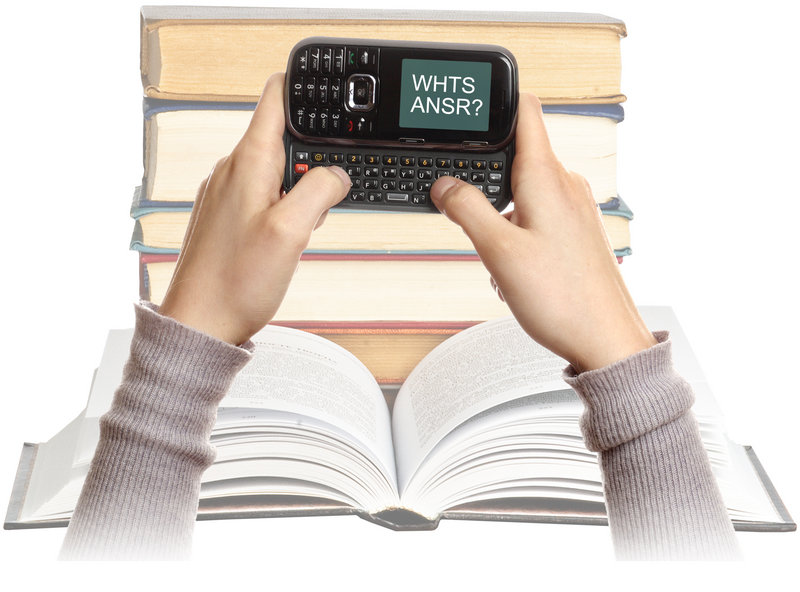
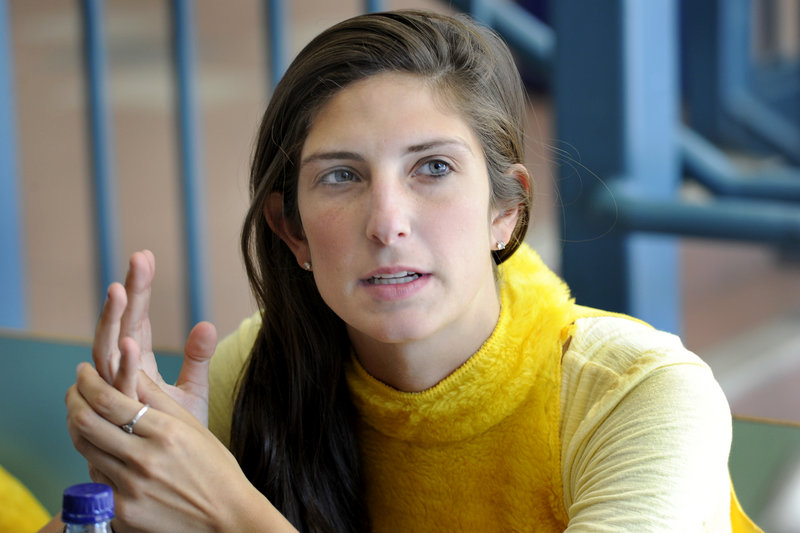
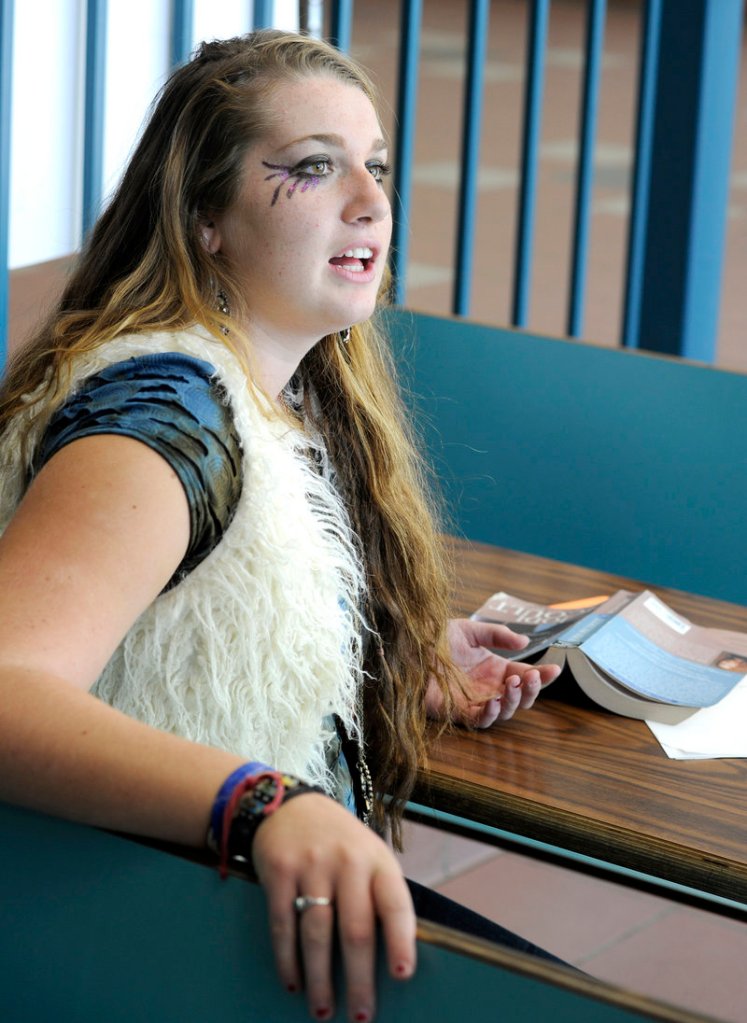
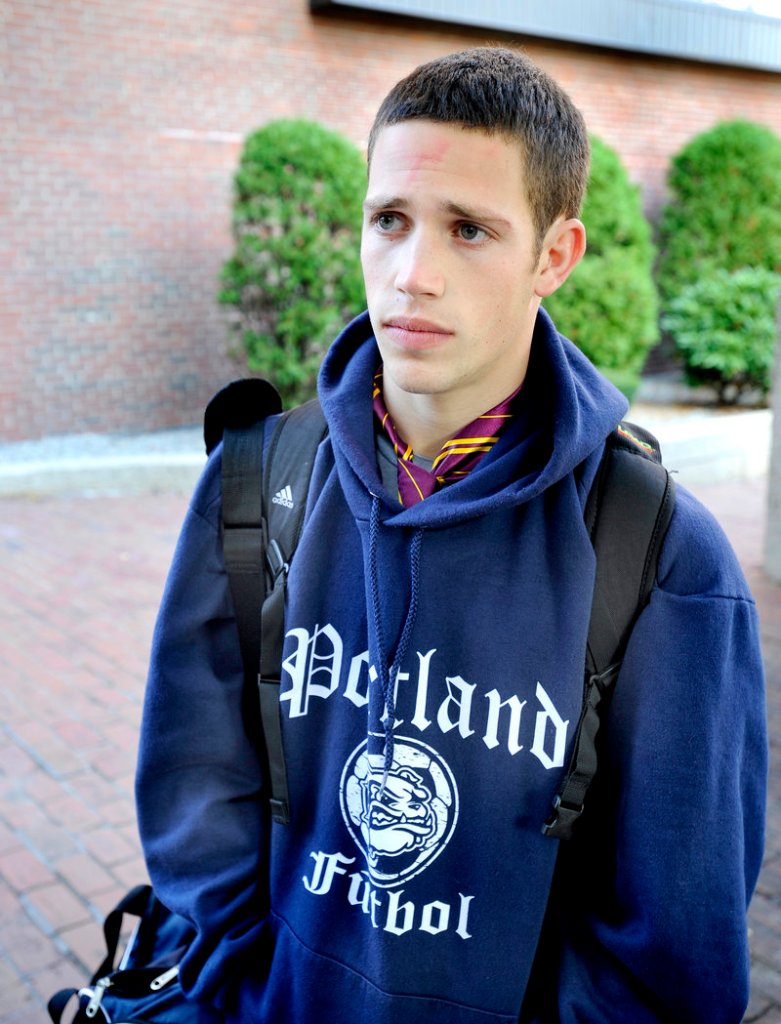
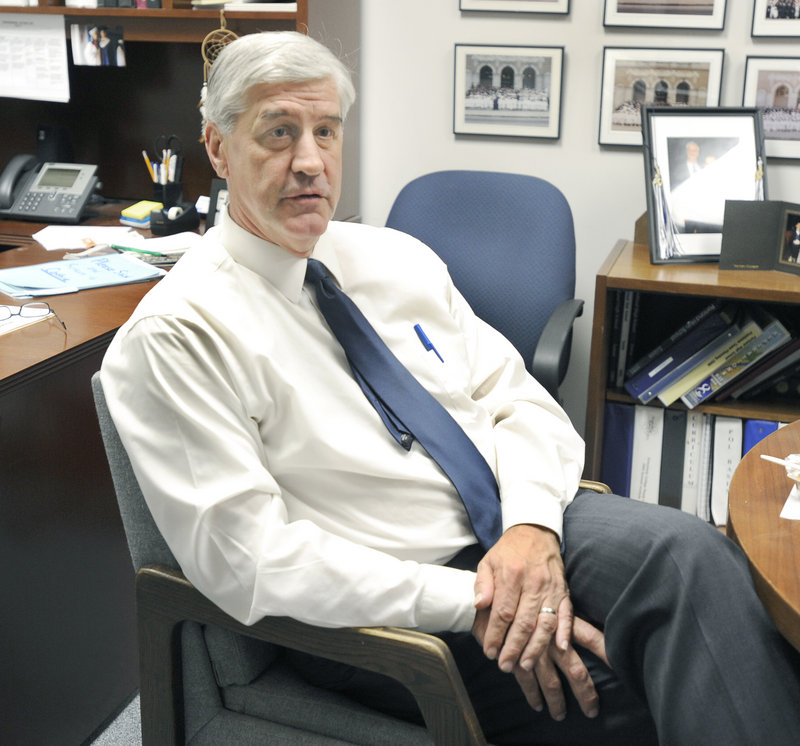

Success. Please wait for the page to reload. If the page does not reload within 5 seconds, please refresh the page.
Enter your email and password to access comments.
Hi, to comment on stories you must . This profile is in addition to your subscription and website login.
Already have a commenting profile? .
Invalid username/password.
Please check your email to confirm and complete your registration.
Only subscribers are eligible to post comments. Please subscribe or login first for digital access. Here’s why.
Use the form below to reset your password. When you've submitted your account email, we will send an email with a reset code.